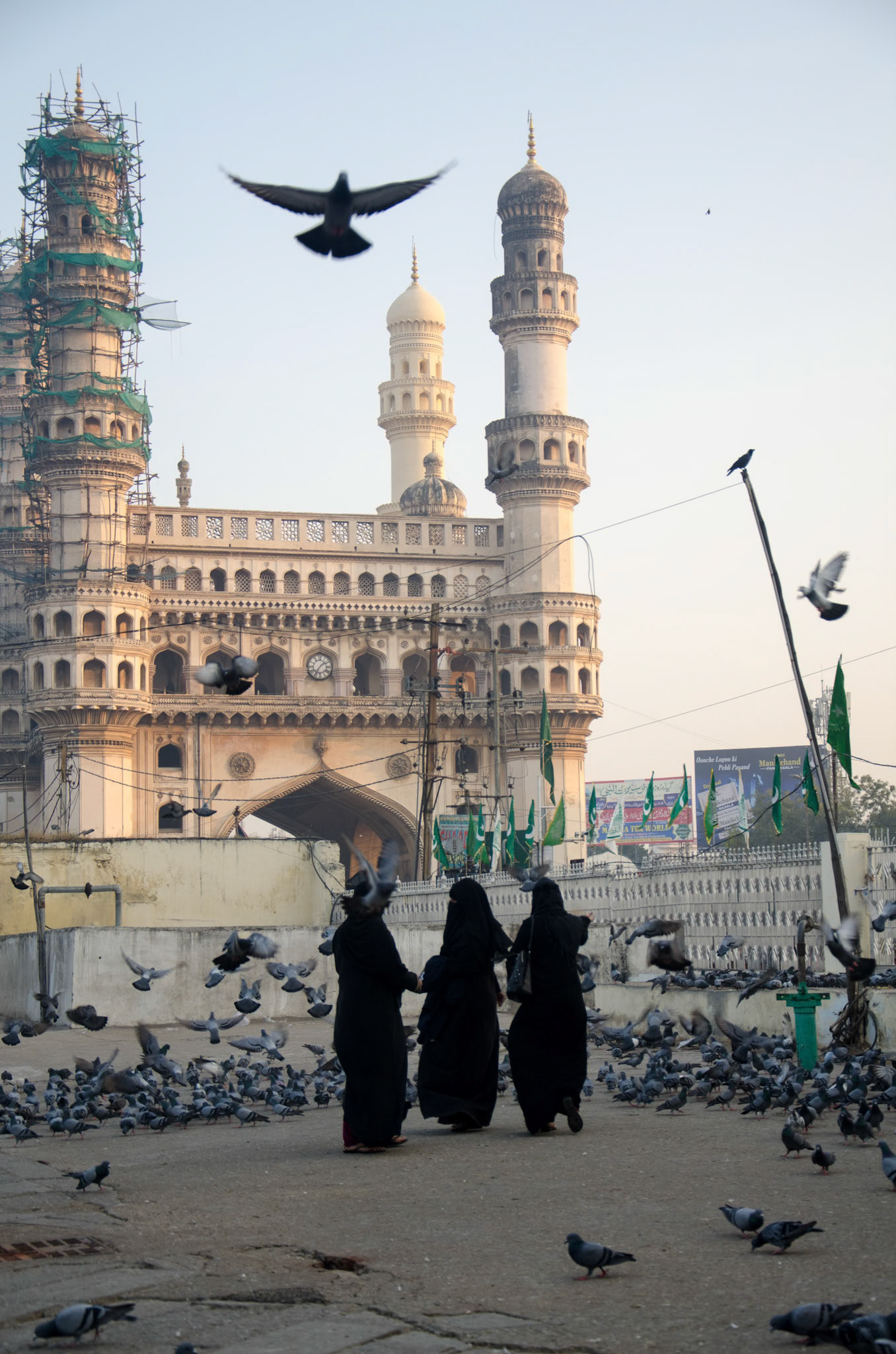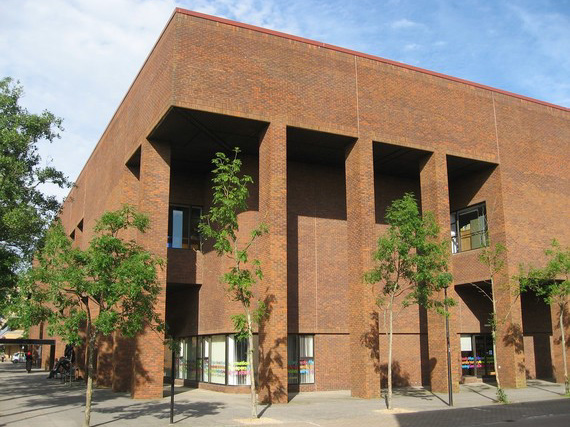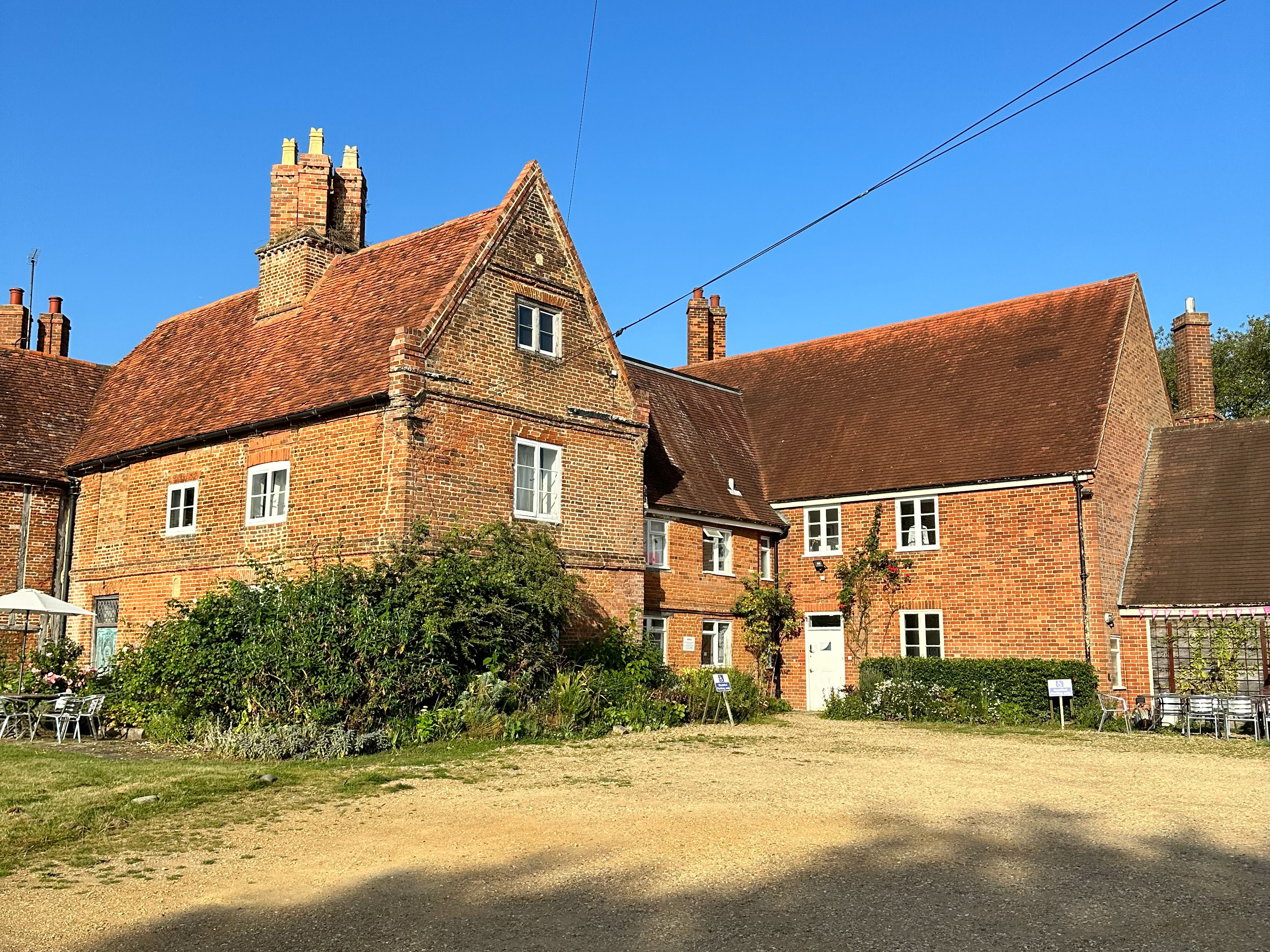Pangong Lake: Ladakh, Himalayas
Pangong Tso or Pangong Lake is situated at an altitude of almost 4350 m or 14272 ft. It is the world’s highest salt water lake. Almost 160 km (approx. 100 miles) in length, one-third of the lake lies in India and the other two-thirds in China. The turquoise blue colour of the water stands in stark contrast to the arid mountains surrounding it.
Landscape of Pangong Lake: Ladakh, Himalayas
Another view of Pangong Lake. It is one of the most famous lakes in the Ladakh region and derives its name from the Tibetan word ‘Pangong Tso’, which means ‘high grassland lake’.
Nigiri Mountain Railway: Coonoor, Tamil Nadu
This is one of the three UNESCO World Heritage Sites under the name “Mountain Railways of India”. It is a 46 km (29 mi) long single-line railway connecting the towns of Mettupalayam and Ooty. It winds through some scenic vistas of Nilgiri Hills and is the only rack and pinion railway in India.
My Mum's Box of Spices
Masala Dabba aka Box of Spices is typically found in most Indian households. It provides quick access to various commonly used spices in Indian cooking. Pictured here is my mum’s own spice box! How many spices can you identify?
Hawa Mahal: Jaipur, Rajasthan
Hawa Mahal (lit. ‘Palace of Winds’) was built in 1799 by Maharaja Sawai Pratap Singh. It was built from red and pink sandstone and has 953 small windows called Jharokhas. They offer a private viewing area for the royal women who would observe the street processions without being seen from outside.
Panna Meena ka Kund: Jaipur, Rajasthan
A 16th century stepwell and a hidden gem located in Amer near Jaipur. It is Jaipur’s sole fully restored and operational stepwell.
Varanasi | Bananas | Kashi
Varanasi is one of the oldest cities in the world and is regarded as the spiritual capital of India. It is very popular for its ghats where there is so much going on throughout the day. It truly is a timeless city!
Sunrise in Varanasi: Varanasi, Uttar Pradesh
Such a beautiful sunrise over the River Ganga with a striking silhouette of a boat ferrying passengers against the golden light reflecting off the waters of the river.
Ganga Aarti: Varanasi, Uttar Pradesh
Ganga Aarti is a magnificent evening ritual in Varanasi worshipping River Ganga. The ceremony is performed by a group of priests on the ghats to show gratitude and respect to the river and seek its blessings.
Devotion: Assi Ghat, Varanasi
A priest gets covered in the incense smoke during the aarti. It’s an incredible experience watching the priests in motion performing one ritual after another which includes water, flowers, lamps, incense, bells and other ritual objects.
Bharatnatyam
Bharatnatyam is one of the eight Indian classical dance forms. It is from the southern state of Tamil Nadu. It narrates religious and spiritual stories It also has specific hand gestures called 'Mudras', that are used to convey meaning and emotions.
Kathak
Kathak is another Indian classical dance form. It is characterised by intricate footwork and precise rhythmic patterns that the dancer articulates by controlling about 100 ankle bells. Pictured here is my friend performing on Regent Street in London around the time of the King’s Coronation in 2023.
Charminar: Hyderabad, Telangana
Charminar (lit. ‘Four Minarets’) is a landmark of Hyderabad (my hometown) and was constructed in 1591 AD. It was constructed to commemorate the eradication of plague during that time. This structure has been restored in recent years and this pic is now a unique historic capture.
Rama Yantra, Jantar Mantar: New Delhi
Maharaja Jai Singh II of Jaipur built astronomy instruments in 5 cities in Northern India. Pictured here is the inside of one of the instruments which was used to measure the altitude and azimuth of celestial bodies.
Cyber Towers: Hyderabad, Telangana
Cyber Towers was the first structure that laid the foundation of the IT industry in Hyderabad which is home to some big tech companies like Google, Amazon, Facebook, Microsoft to name a few. This pic is a black & white fine art edit of this unique architecture.
Great Wall of Amer: Jaipur, Rajasthan
Stretching for 7 miles (12 km) this is the third largest wall in the world. It overlooks the Amer Fort and was built to protect the city from any invasions.
The Tourist: City Palace, Jaipur
The man in the centre is a tourist posing for a pic flanked by the royal guards at the City Palace. He seems to be from South India as he is wearing a piece of clothing on his lower body called veshti. It is a traditional white cloth with a golden border and worn on special occasions.
A Shoe Shop: Hyderabad, Telangana
A street side shop selling fashionable footwear for women. This place was bustling with people who had come out to shop after breaking their fast (Iftar) during the month of Ramadan. This is a common scene not just in India but all over the world.
Rani ki Van: Patan, Gujarat
Rani ki Vav (lit. “the Queen’s Stepwell”) is located on the banks of Saraswati River and was designed as an inverted temple. It is a UNESCO World Heritage site and has numerous sculptures across the structure.
Worship: Golconda Fort, Hyderabad
A devotee applies sandalwood and vermillion paste on the steps of the Golconda Fort as part of the Bonalu festival. It is a traditional festival of Telangana to worship Goddess Mahakali.
Lord Avalokitesvara
A statue of Lord Avalokitesvara (meaning “the lord who looks down”) located in the Dalai Lama Temple Complex. He is associated with great compassion and is known for his popular mantra – Om Mani Padme Hum
Buddha Dordenma: Thimphu, Bhutan
Modhera Sun Temple: Modhera, Gujarat
This is one of the major sun temples in India and was built during 1026-27 CE. The sanctum sanctorum is designed in a way that the first rays of the rising sun lit up the image of Surya during solar equinox days. And on summer solstice day, the sun shines directly above the temple at noon casting no shadow.
Green Rustic Door: Hyderabad, Telangana
Notice the long iron strip which is used to secure these old doors and the two padlocks keeping the strip in place and to lock the doors. Also note the large hinges in the outer four corners. These were very commonly used in very old shops.
Colourful Bangles: Hyderabad, Telangana
Street hawkers and vendors are common across India. They sell several things from fruits, vegetables to household utility items, clothing, footwear and fashion accessories. They sell these on a four-wheeled pushcart walking around in the local areas or just sat on the side of a street usually with other street vendors selling different stuff.
Chand Baori: Abhaneri, Rajasthan
This is a close up of one of the largest stepwells in the world. It has over 3500 steps and is nearly 13 floors deep. It was built by King Chand Raja (hence the name) during the 8th and 9th centuries.
Galtaji Temple Complex: Jaipur, Rajasthan
It is a cluster of temples built in the Aravalli Hills and located around 10 km from Jaipur. It has several sacred tanks (called kunds) which are used by pilgrims for bathing and thereby washing away their sins. It is also called ‘The Monkey Temple’ because of a huge population of monkeys in this complex.
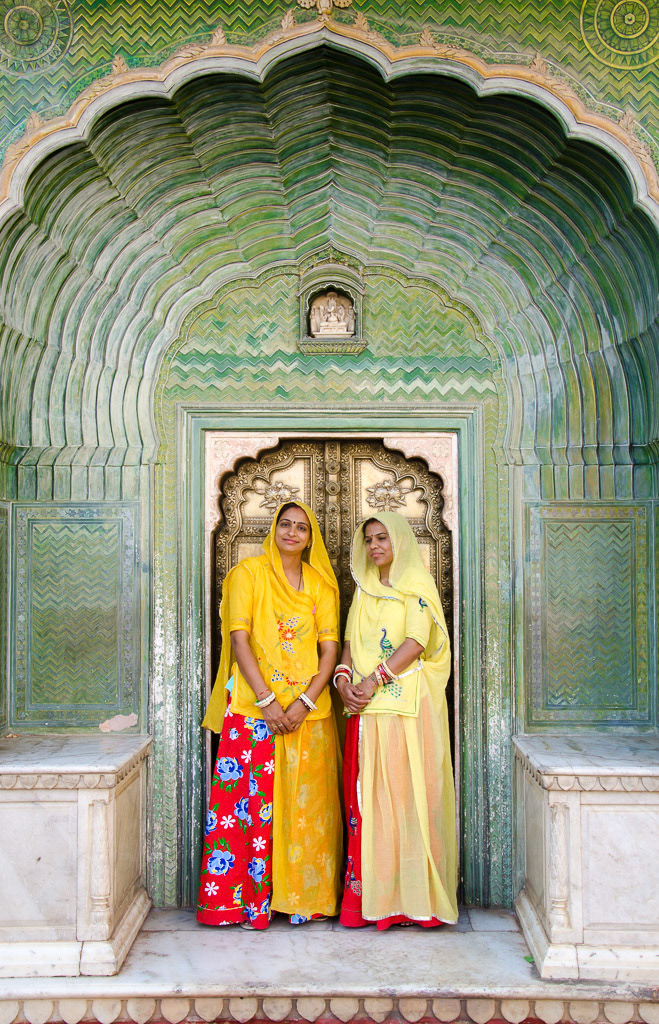
Rajasthani women in traditional attire
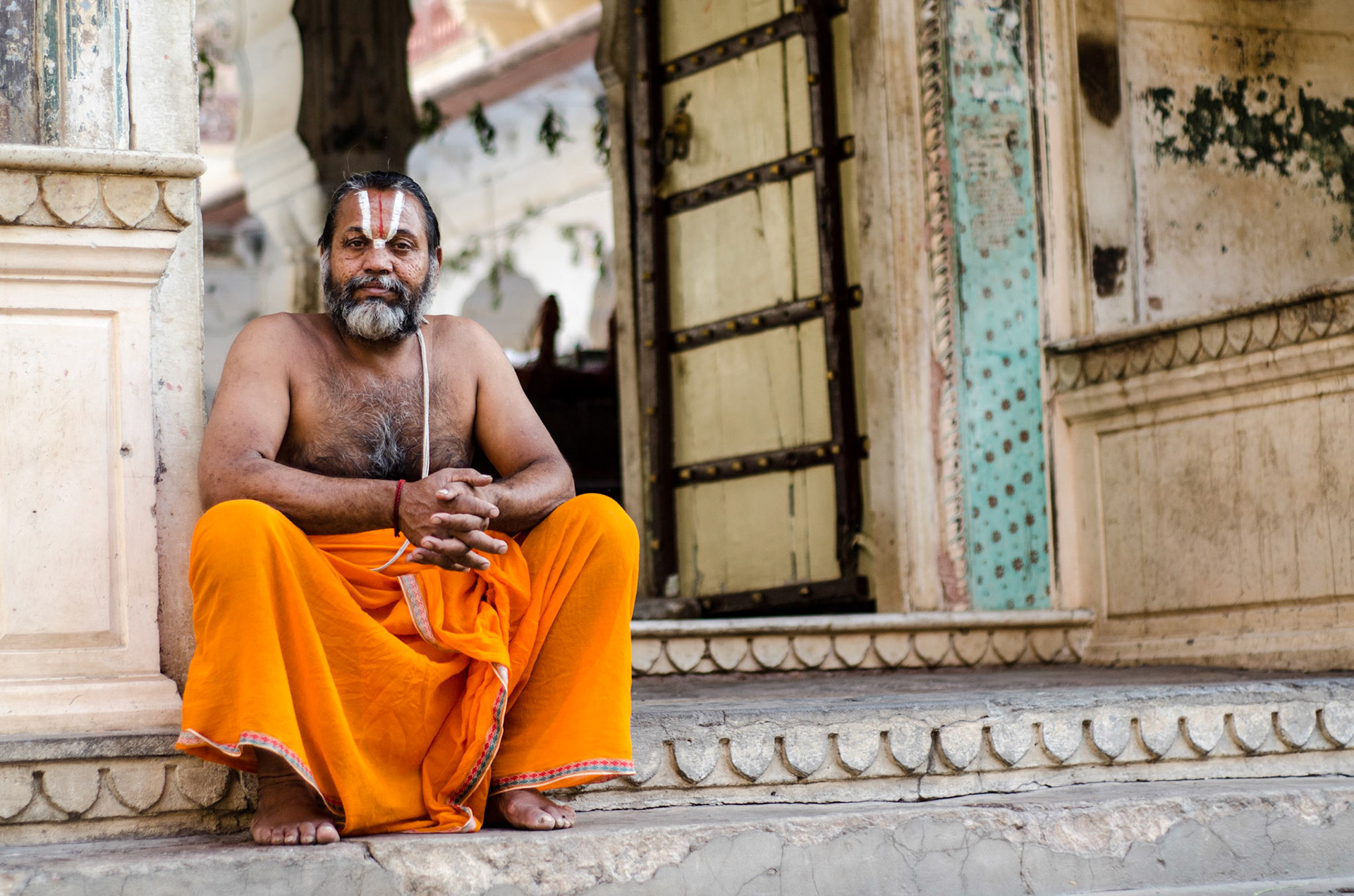
A Hindu priest outside a temple in Jaipur
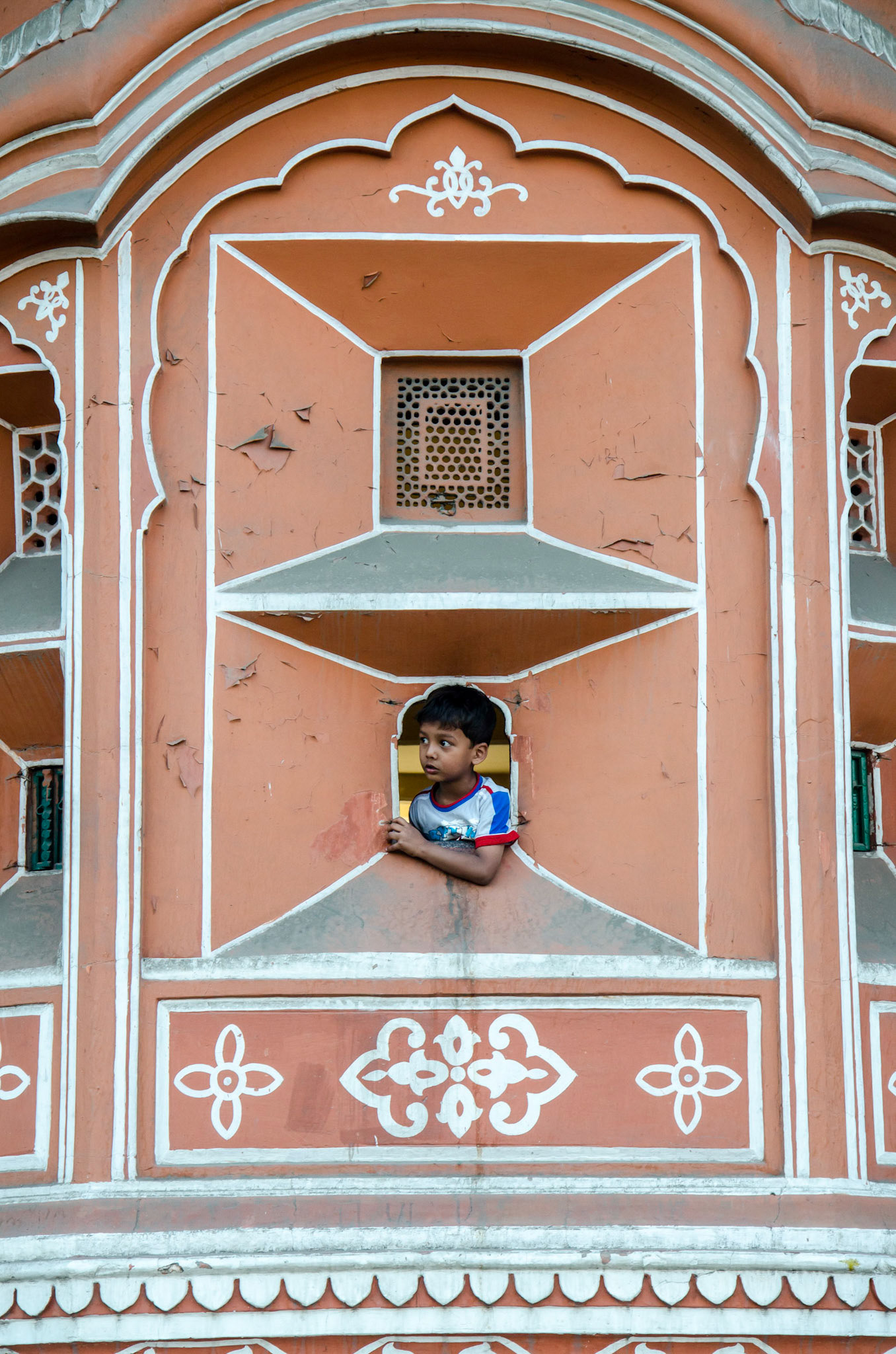
A boy peeping out of a window in Hawa Mahal
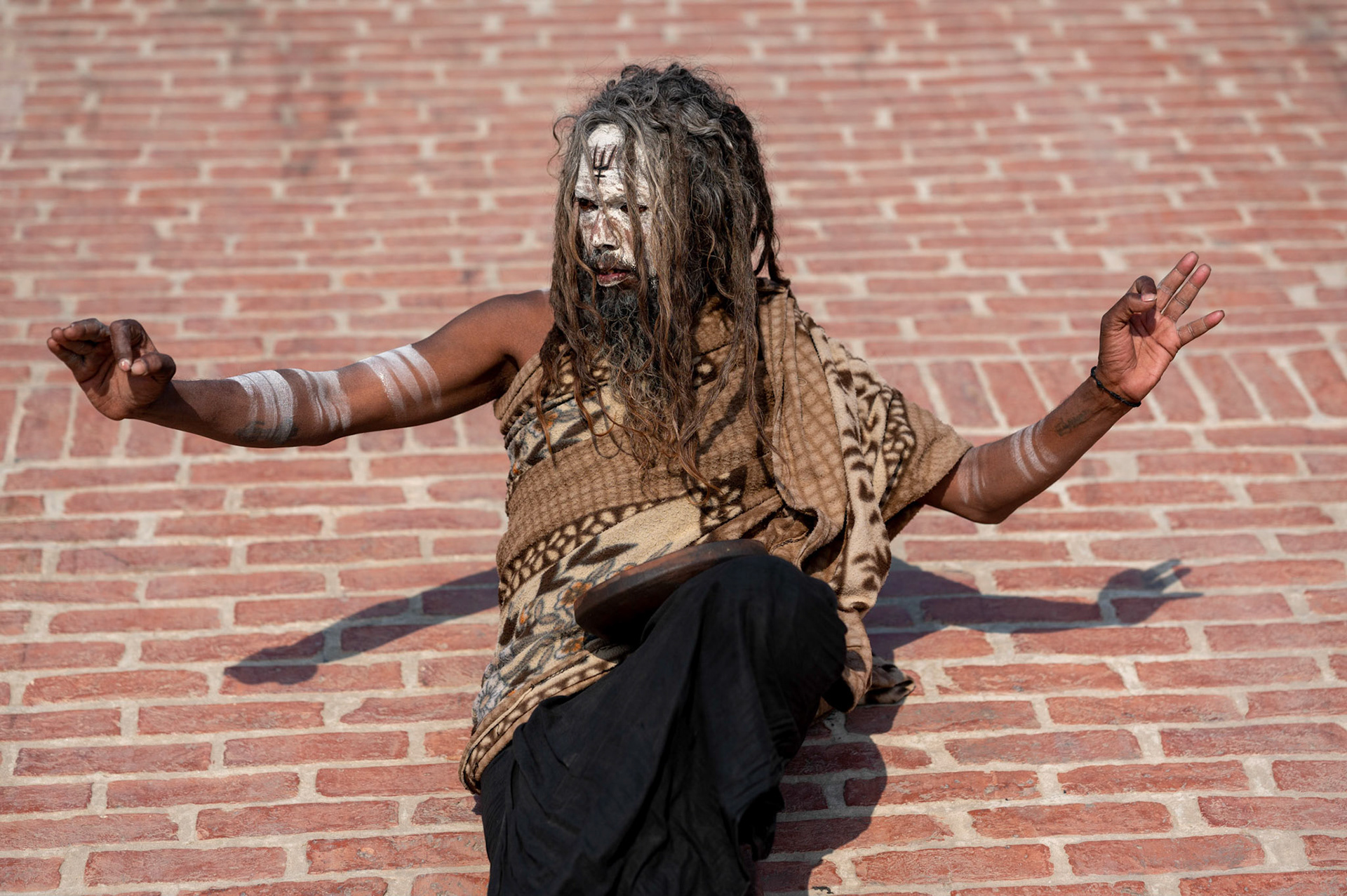
A sadhu on the ghats of Varanasi
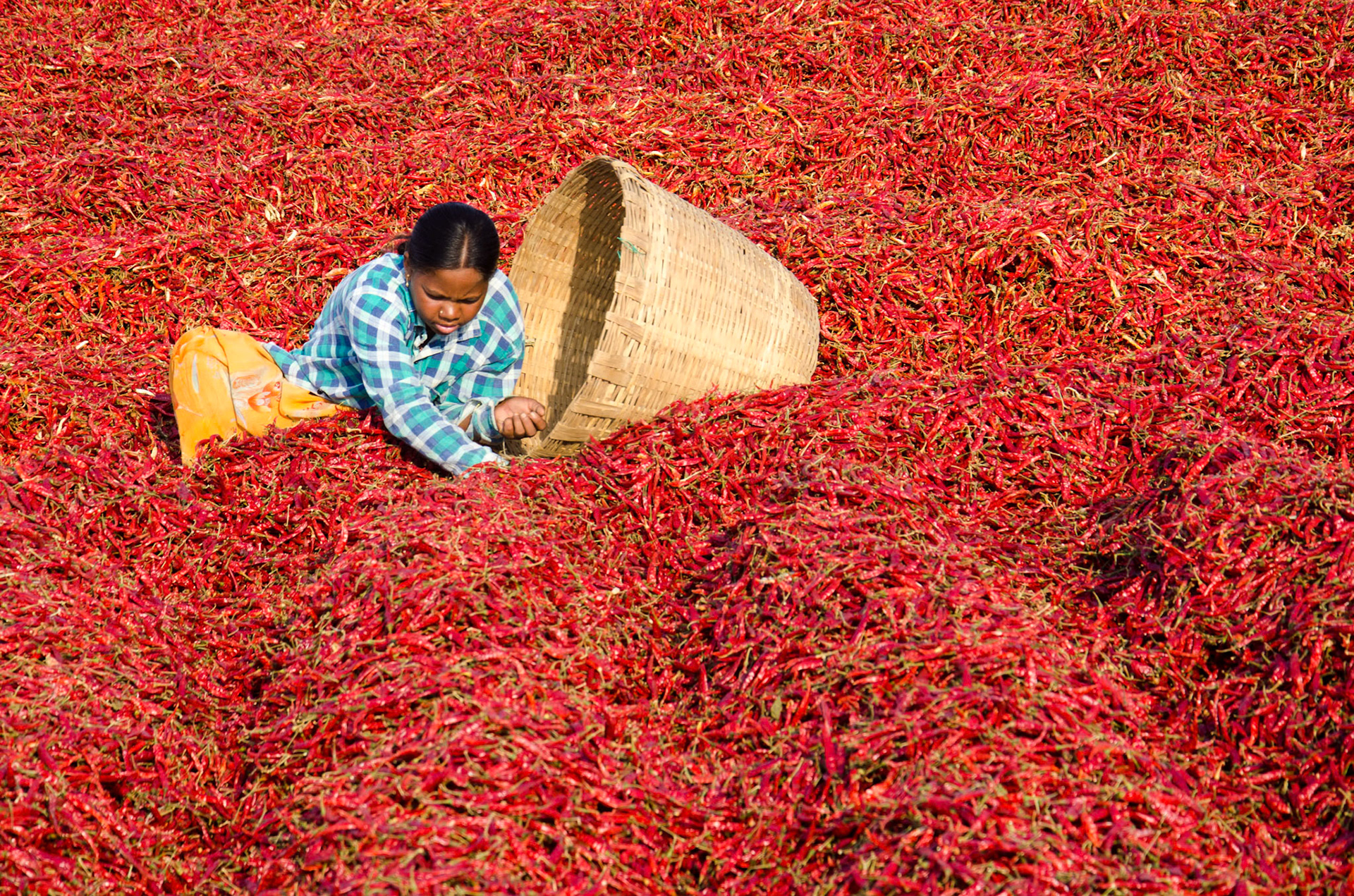
A lady working in a chilli farm in southern India
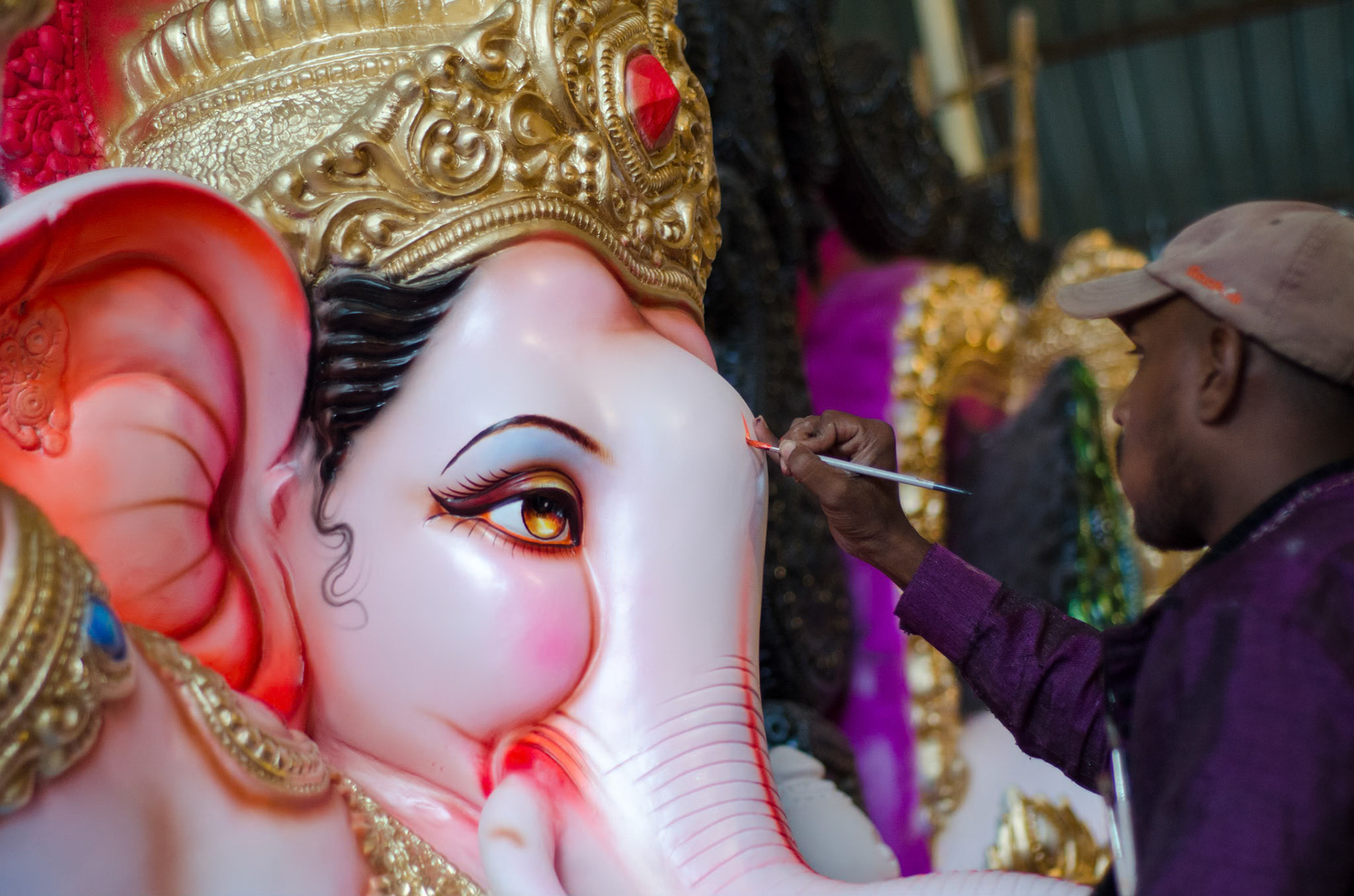
A sculptor making a finishing touch on a Ganesha idol
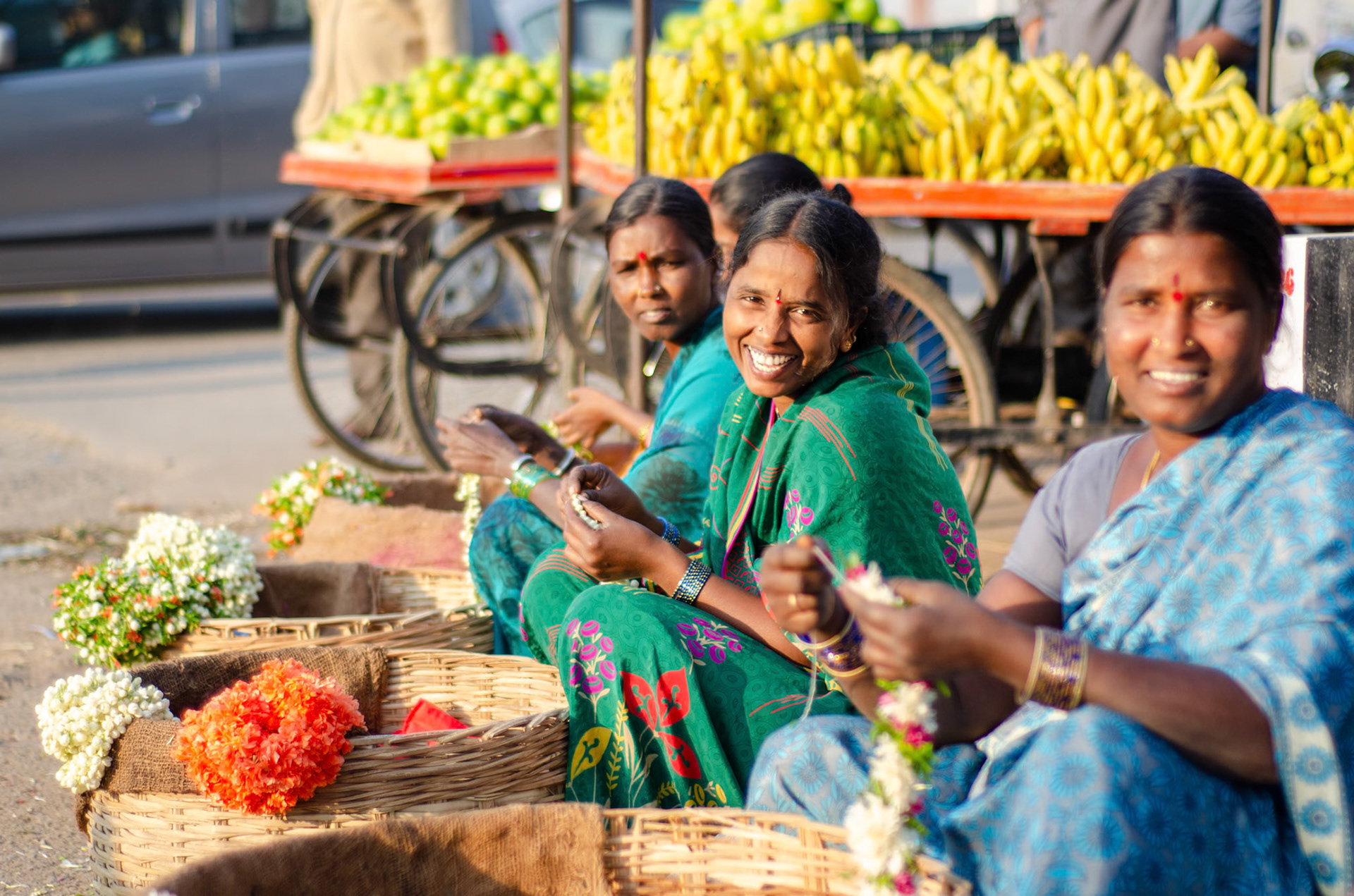
Flower vendors outside a wholesale flower market
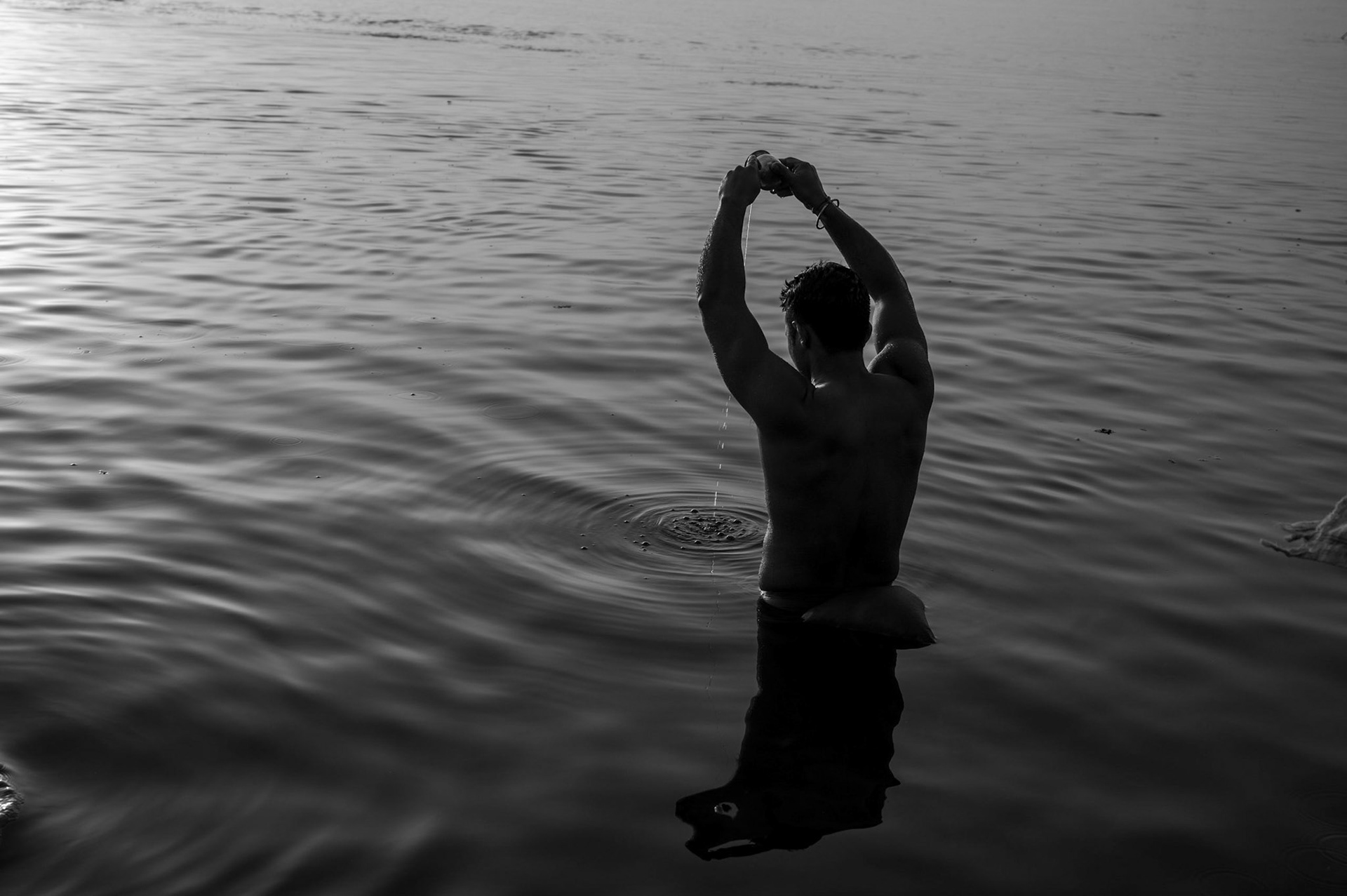
A local taking a dip in River Ganga in Varanasi
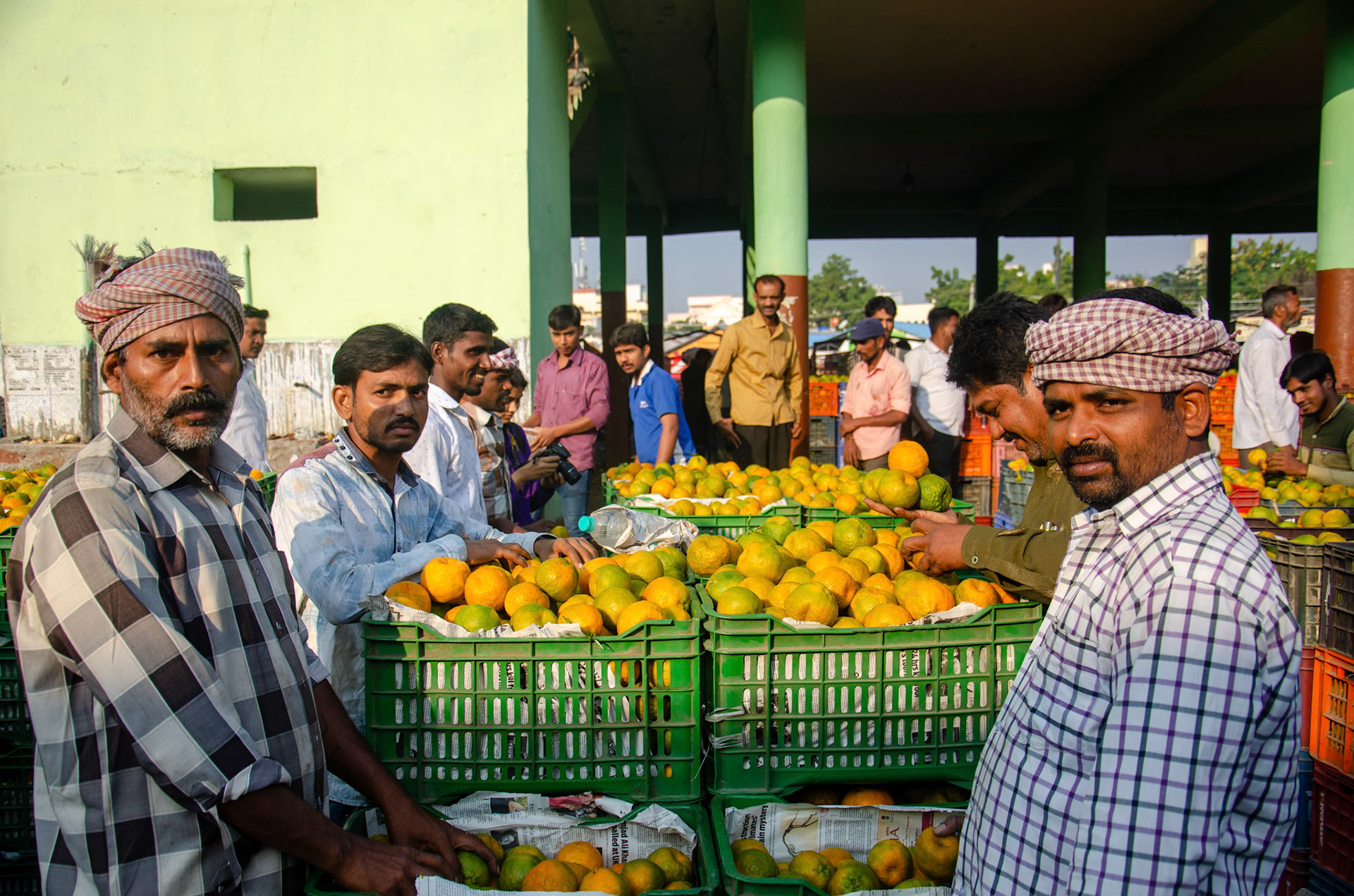
Fruit vendors at a local wholesale fruit market
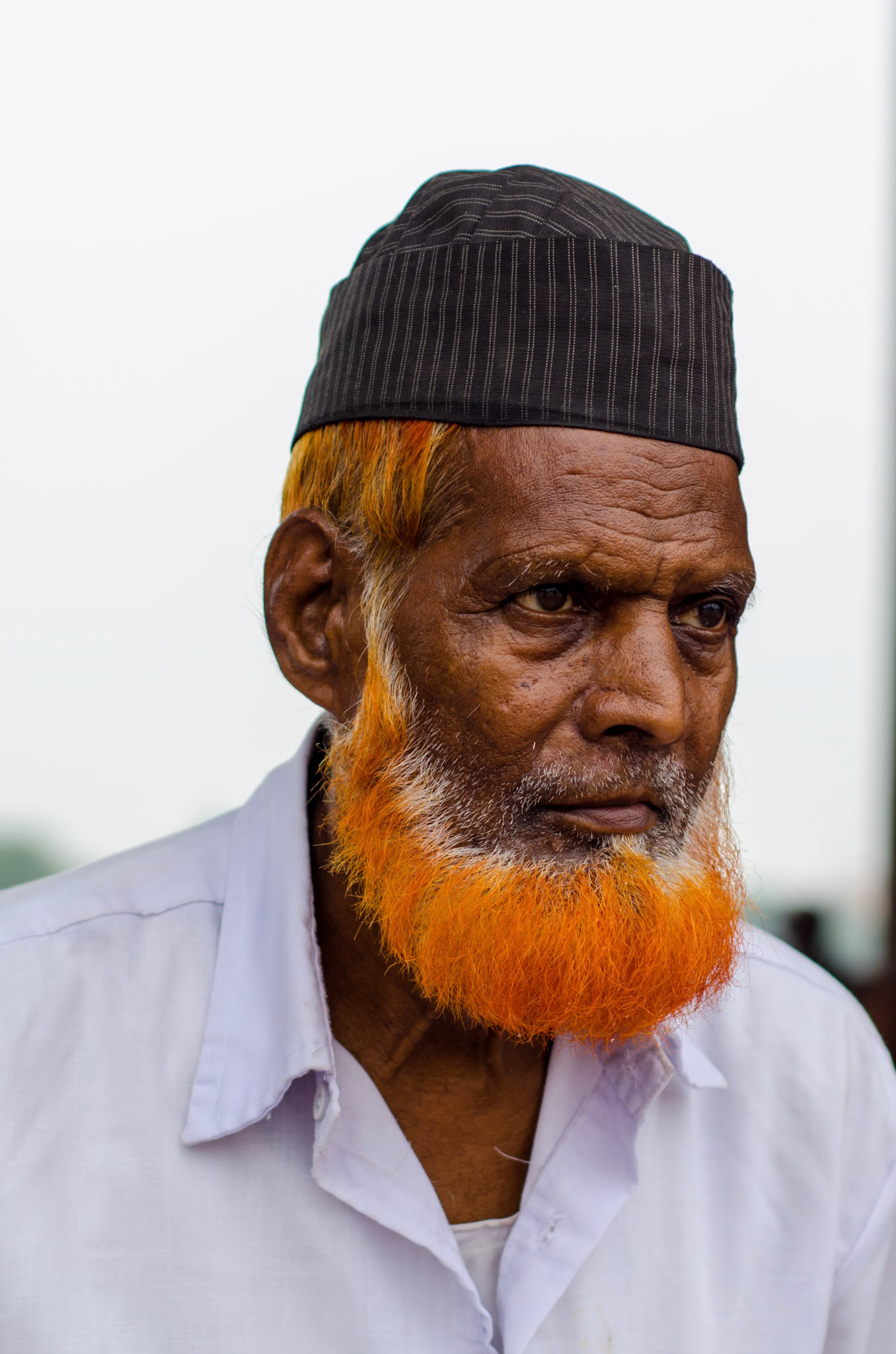
Portrait of a Muslim man with henna dyed beard
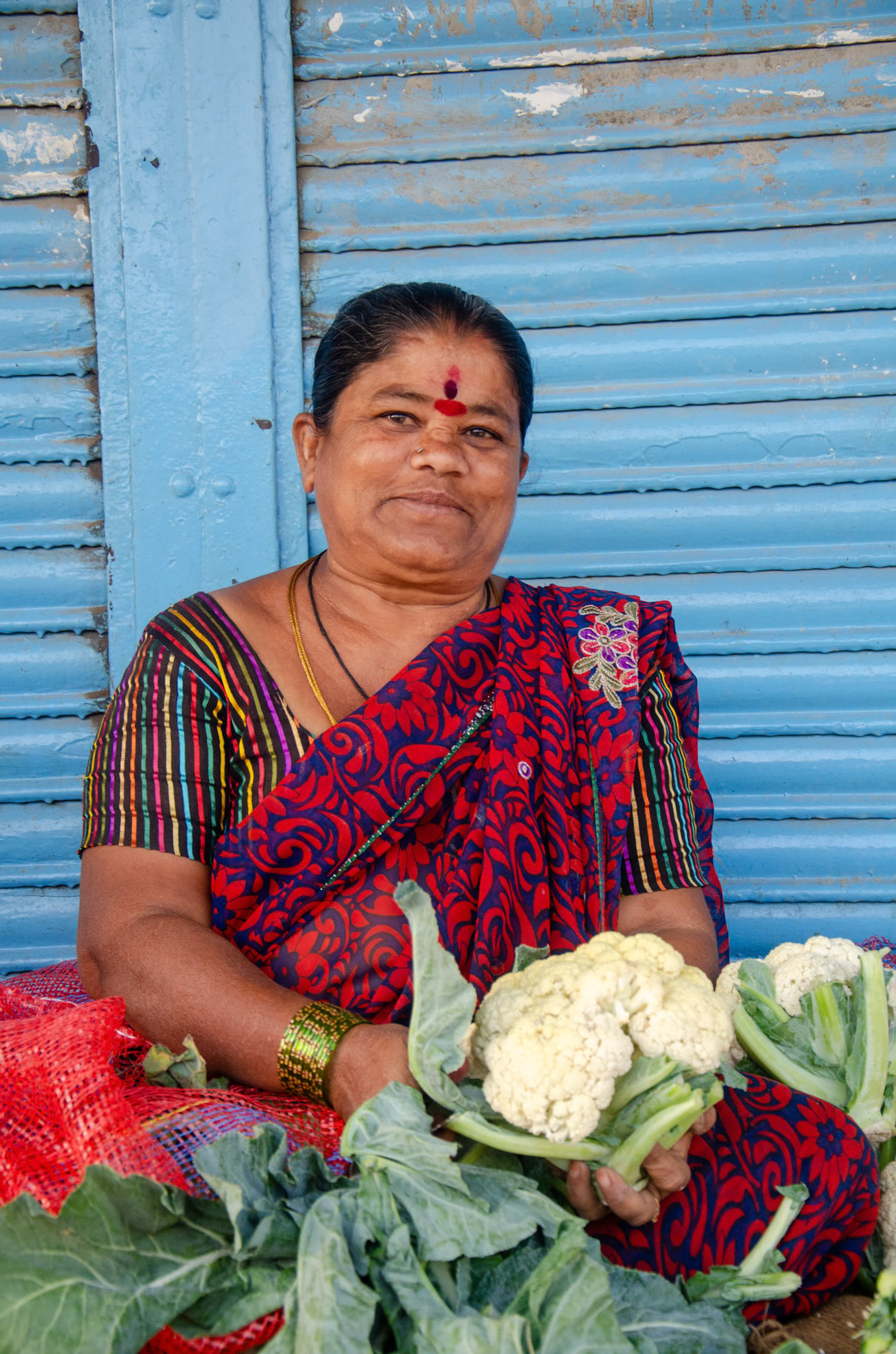
A local street vegetable vendor
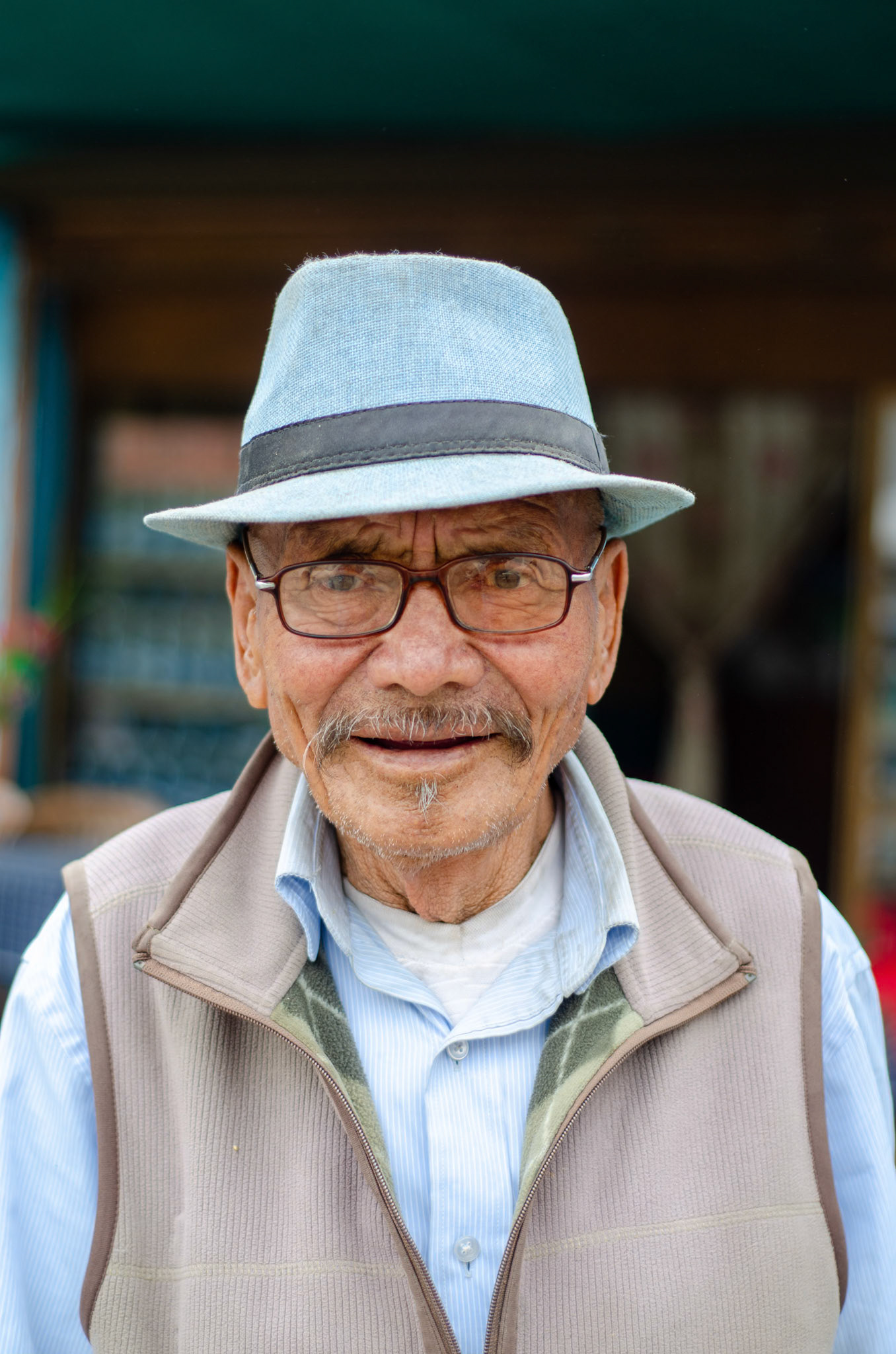
Owner of a local café in Ladakh
